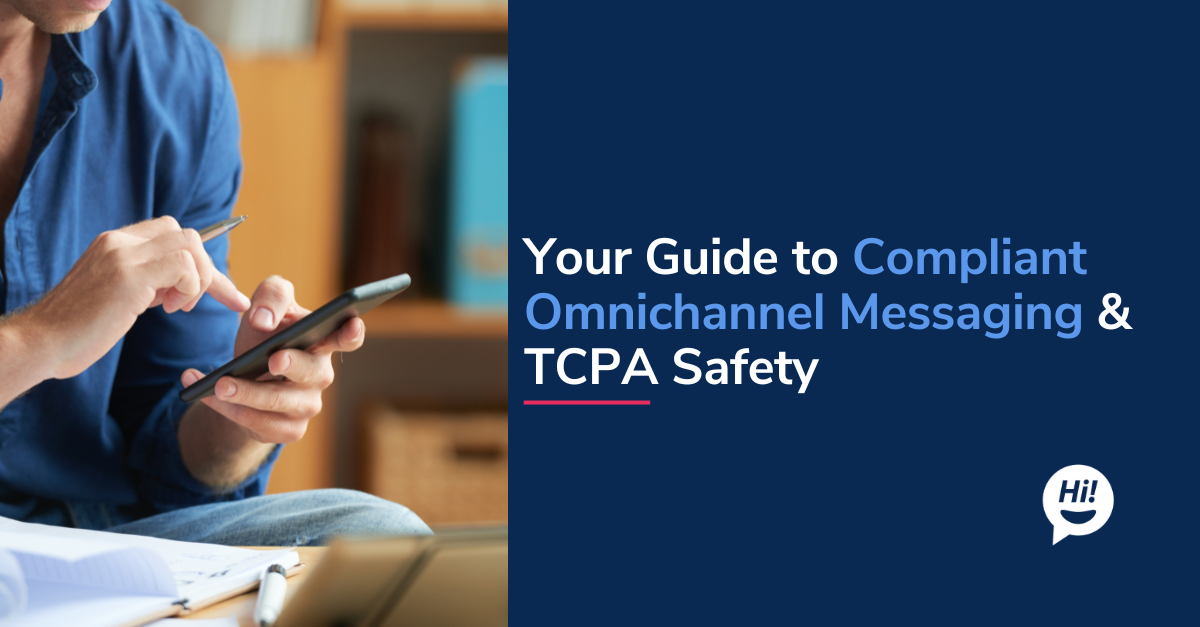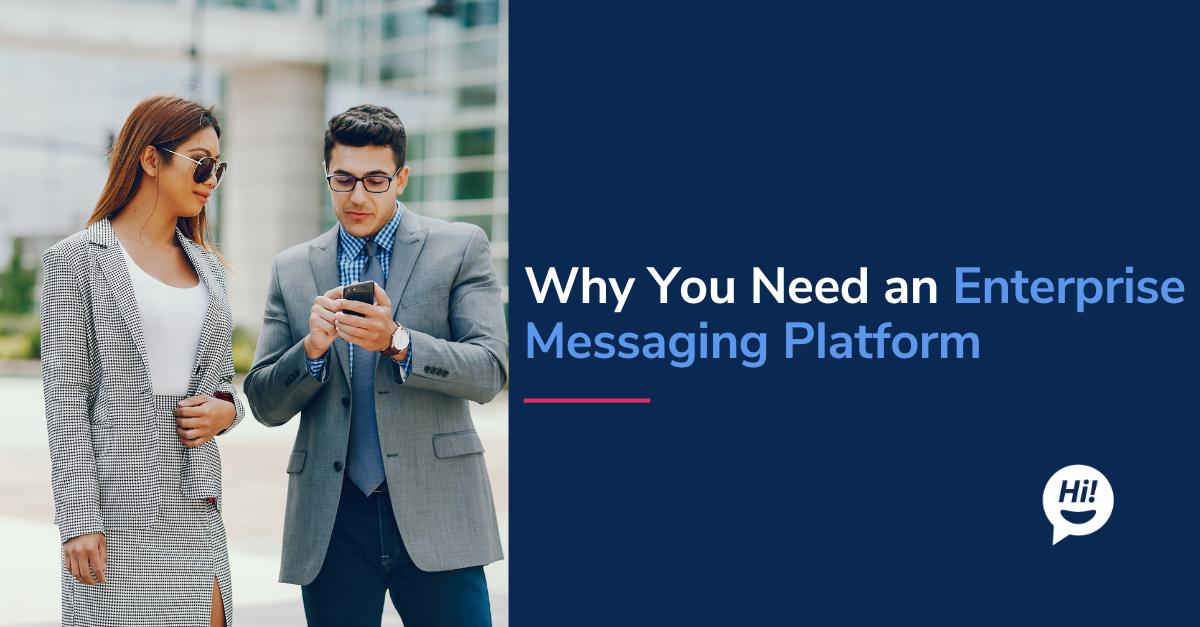What is an SMS Message?
SMS stands for Short Message Service. It is a text messaging service that allows users to send and receive short text messages between mobile phones. SMS messages are limited to 160 characters, and they can be sent and received over 2G, 3G, 4G, or 5G networks.
Different types of SMS methods
SMS is an important communication tool for businesses and individuals. There are different types of SMS methods, each with its advantages and disadvantages. They are as follows.
1- Way SMS
1-way SMS is a type of SMS messaging where messages can only be sent from one person to another. The recipient cannot reply to the message.
A business can use 1-way SMS for a variety of purposes, including:
- Marketing: Businesses use 1-way SMS to send customers promotional messages, reminders, and alerts.
- Notifications: Businesses use 1-way SMS to send alerts, such as appointment reminders, shipping updates, and password reset instructions.
- Transactional messages: Businesses use 1-way SMS to send transactional messages, such as order confirmations, shipping confirmations, and payment reminders.
- Government and public safety: Governments and public safety organizations use 1-way SMS to send emergency alerts, AMBER alerts, and other important notifications.
When to Use 1-Way SMS?
1-way SMS is a good choice when you need to send a message to many people and do not need a response. It is also a good choice when sending a time-sensitive message, such as an appointment reminder or a shipping notification.
Here are some examples where you can use 1-way SMS:
- Promotional message to your customers about a new product or service
- Reminders to your customers about an upcoming appointment
- Shipping notification to your customers about their order
- Sending a password reset instruction to your customers
- Emergency alerts to your customers about a natural disaster
2- Way SMS
2-way SMS is a type of SMS messaging where messages can be sent and received between two people. This means that the recipient can reply to the message, and the sender can then reply.
Businesses can use 2-way SMS for a number of purposes, including:
- Customer service: Businesses use 2-way SMS to provide customer support, such as responding to questions, troubleshooting issues, and providing updates.
- Lead generation: Businesses use 2-way SMS to generate leads, such as collecting contact information or qualifying potential customers.
- Marketing: Businesses use 2-way SMS to send promotional messages but with the ability to receive replies from customers, which can help them better understand their needs and preferences.
- Surveys: Businesses use 2-way SMS to conduct surveys, such as gathering customer feedback or collecting data for market research.
- Voting: Businesses use 2-way SMS to conduct polls or votes, such as for customer satisfaction or product preferences.
When to Use 2-Way SMS?
2-way SMS is a good choice when you need to talk with someone. It is also a good choice when you need to collect information from someone or get their feedback.
Here are some examples of when to use 2-way SMS:
- Answering a customer's question about your products or services
- Troubleshooting an issue with a customer's account
- Sending a survey to your customers to get their feedback
- Conducting a poll to see what your customers think about a new product or service
- Getting a customer's vote for a contest or promotion
Conversational SMS
Conversational SMS is a type of SMS messaging that allows for a more natural conversation between two people. It is similar to 2-way SMS but allows longer messages and more complex discussions.
Your business can use conversational SMS for the following purposes:
- Customer service: Businesses use conversational SMS to provide customer support, such as troubleshooting issues or providing assistance.
- Sales: Businesses use conversational SMS to qualify leads, answer questions, and close deals.
- Marketing: Businesses use conversational SMS to send promotional messages, but with the ability to have a more personalized conversation with customers.
- Education: Schools and universities use conversational SMS to communicate with students, parents, and staff.
- Healthcare: Healthcare providers use conversational SMS to communicate with patients, schedule appointments, and provide reminders.
When to Use Conversational SMS?
Conversational SMS is a good choice when you need a more natural conversation with someone. It is also a good choice when you need to collect information from someone or get their feedback.
Here are some examples of when to use conversational SMS:
- Answering a customer's question about your products or services
- Troubleshooting an issue with a customer's account
- Sending a survey to your customers to get their feedback
- Conducting a poll to see what your customers think about a new product or service
- Getting a customer's vote for a contest or promotion
- Qualifying a lead or closing a deal
- Scheduling an appointment or sending a reminder
- Providing educational content or answering questions
- Communicating with patients or scheduling appointments
API-based SMS
API-based SMS is a type of SMS messaging that allows businesses to integrate SMS into their own systems and applications. Companies can send and receive SMS messages without a third-party SMS provider.
You can use API-based SMS in the following ways,:
- Customer service: Businesses can use API-based SMS to provide customer support, such as sending confirmations, responding to questions, and troubleshooting issues.
- Marketing: Businesses can use API-based SMS to send promotional messages but with the ability to integrate with their systems and applications, such as CRM systems or e-commerce platforms.
- Shipping notifications: Businesses can use API-based SMS to send shipping notifications to customers, such as tracking information or delivery confirmations.
- Appointment reminders: Businesses can use API-based SMS to send appointment reminders to customers, such as time and location information.
- Event notifications: Businesses can use API-based SMS to send event notifications to customers, such as ticket information or reminders.
When to Use API-based SMS?
API-based SMS is a good choice when you need to integrate SMS into your own systems and applications. It is also a good choice when sending more complex SMS messages, such as those that include links or images.
Here are some examples of when to use API-based SMS:
- Send a confirmation to a customer after they make a purchase.
- Notifying customers about their orders
- Appointment reminder to a customer ahead of time
- Sending an event notification to a customer about an upcoming event
- Requesting a survey to a customer to get their feedback
- Sending a poll to a customer to see what they think about a new product or service
- Integrating SMS with your CRM, e-commerce, or event management systems.
Some Additional Factors to Consider When Choosing an SMS Method:
Even though you have an idea of what kind of SMS method you can use for your business, it’s always best to have a checklist to help with it.
Here are some factors to consider:
- Cost: The cost of SMS messaging can vary depending on your chosen method. 1-way SMS is typically the cheapest option, while API-based SMS can be more expensive.
- Audience: The type of audience you are targeting will also affect the best SMS method. If you are targeting a younger audience, then conversational SMS may be a good option, as they are more likely to be comfortable using this type of messaging.
- Compliance: You need to ensure that you comply with all applicable laws and regulations when sending SMS messages. This includes things like obtaining consent from your recipients and not sending messages that are considered spam.
What is The Best SMS Method to Use?
The best SMS method to use will depend on your specific needs. If you are sending promotional messages, then 1-way SMS may be sufficient. Suppose you must provide customer service or have a more natural conversation with your customers. In that case, 2-way SMS or conversational SMS may be a better option. And if you need to integrate SMS into your systems and applications, API-based SMS may be the best choice.
In conclusion, you can use different SMS methods for various purposes. The best SMS method to use will depend on your specific needs. If you need an expert to help figure this out then reach out to us for a demo today.
To learn more about Botsplash click the button below to schedule a demo with our team.








